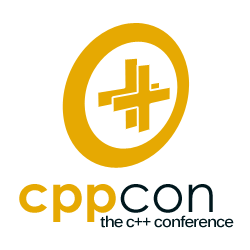CppCon Call for Lightning Talks
Do you have something to say to C++ programers? Can you say it in five minutes?
CppCon 2016 Call for Lightning Talks
by Michael Caisse
From the call:
Lightning talks are fast paced, short presentations often sprinkled with humor and intrigue. The popular 5-minute talks present topics that are interesting to C++ programmers and are open to speakers at all experience levels.

 Have you registered for CppCon 2016 in September? Don’t delay –
Have you registered for CppCon 2016 in September? Don’t delay –  Have you registered for CppCon 2016 in September? Don’t delay –
Have you registered for CppCon 2016 in September? Don’t delay –  Have you registered for CppCon 2016 in September?
Have you registered for CppCon 2016 in September? 
 Interesting interview:
Interesting interview: